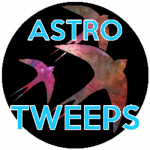Occupy Science! (Javier Rodríguez Laguna, April 2015)

Javier Rodríguez Laguna has a Ph.D. in theoretical physics and is currently a researcher at Universidad Nacional de Educación a Distancia.
‘Science is anarchist’ according to Javier Rodríguez Laguna, researcher at Universidad Nacional de Educación a Distancia. Yet it seems that ‘we have accepted to many unnecessary power structures’ Is it time for science to open up and follow in the tracks in the free software community?
A spectre is haunting science: the Occupy spectre. Well, it is really haunting the whole world, but science is specially inclined to it. Are you suspicious of all authority? Do you feel that knowledge should be open, that free discussion leads to better results, that all norms and protocols should be revisited every certain time? All those things make good science, and they all are in the Occupy spirit. Science is anarchist [1]: all sources of power, such as government and money, should be kept at bay.
Yet, in science we have accepted too many unnecessary power structures: for-profit journals which add little value and prevent science to disseminate [2]; academic organization and syllabi which kill curiosity and innovation; career designs which encourage submissive and mediocre researchers and teachers; undercover sexism… Scientists accepted all that because, well, you know, freedom. Tenured professors are free to pursue their own intellectual interests, and that’s a dream job.
But then the crisis hit. Economic meltdown, rampant inequality, democracy showed its immaturity. In the squares of New York, Madrid or Athens, people discussed the constraints to actual democracy. Why should we vote for representatives instead of policies? [3] An impulse to hack democracy was born: ideas to improve collective decision-making.
In science the crisis also hit: few academic jobs, students fees and debts mounting. The first battlefield was with Elsevier [4], a renowned publishing company whose abusive pricing policies became the target of a boycott. Why do we have to disseminate our research through private companies whose main interest is to make a profit from our work? We do the research, the typesetting, the refereeing and, many times, also the editing work. And they make money. Aha. We submit our papers to them because we want their prestigious quality stamps. But, how did the journals themselves become prestigious? Because referees (ourselves) filter the best papers for them. For free.
There is a place where the revolution has already succeeded: the free software community [5]. Now it is time for science to open up [6]. Epijournals [7] use the ArXiv [8] (a free research database) for storage, and they only manage a quality stamp. The selected papers [9,10] network is even bolder: why do we need journals at all? Whenever you like a paper, publish your personal recommendation. Relevant recommendations are more valuable than high impact journals.
I am sure that the Occupy spirit is sparking many more ideas. New academic styles, where free exploration is encouraged. New scientific literary genres [11], new organization schemes for knowlege [12,13]. And -let us dream- new democratic funding schemes: I bet that people will rather assign resources to science than to bail out banks. Or, perhaps, a basic income which will allow people to pursue their scientific interests without the pressure for a job. Let us discuss them all.
Javier Rodríguez Laguna
Javier Rodriguez-Laguna is a researcher and teacher of theoretical physics at UNED (a distance learning university) in Madrid. His interests range from quantum computation to biological growth, scientific communication and the relation between science and politics.
References
- http://theanarchistlibrary.org/library/david-graeber-are-you-an-anarchist-the-answer-may-surprise-you
- https://physicsnapkins.wordpress.com/2012/01/16/occupy_scientific_journals/
- http://www.occupy.com/article/only-occupy-can-restore-direct-democracy-america
- http://thecostofknowledge.com/
- http://en.wikipedia.org/wiki/The_Cathedral_and_the_Bazaar
- http://www.openscience.org/blog/
- https://physicsnapkins.wordpress.com/tag/scientific-publishing/
- http://arxiv.org
- https://selectedpapers.net/
- http://communitypeerreview.blogspot.com.es/
- http://beta.briefideas.org/about
- http://www.metacademy.org/
- https://physicsnapkins.wordpress.com/2011/07/01/mathesis/
- Claire Price of Crastina receives outreach award from Royal Society of Biology - October 25, 2020
- Agile Science student project at Brussels Engineering School ECAM: “We can’t wait to try it again!” - August 28, 2020
- Create an infographic in the Lifeology SciArt Infographic Challenge - June 16, 2020
- Adam Ruben – The scientist that teaches undergraduate students comedy - March 27, 2020
- Sam Gregson, Bad Boy of Science: “Comedy helps to bridge the gap” - March 10, 2020
- The Coolest Science Merchandise of 2019 - December 16, 2019
- Science Media Centre (UK) offers guide on dealing with online harassment in academia - November 26, 2019
- Agile project management taught to students and researchers at Karolinska Institutet - September 20, 2019
- Stefan Jansson: Improve your credibility! (Crastina Column, September 2019) - September 6, 2019
- The People’s Poet: Silke Kramprich, tech communicator - August 31, 2019





Leave a Reply
Want to join the discussion?Feel free to contribute!